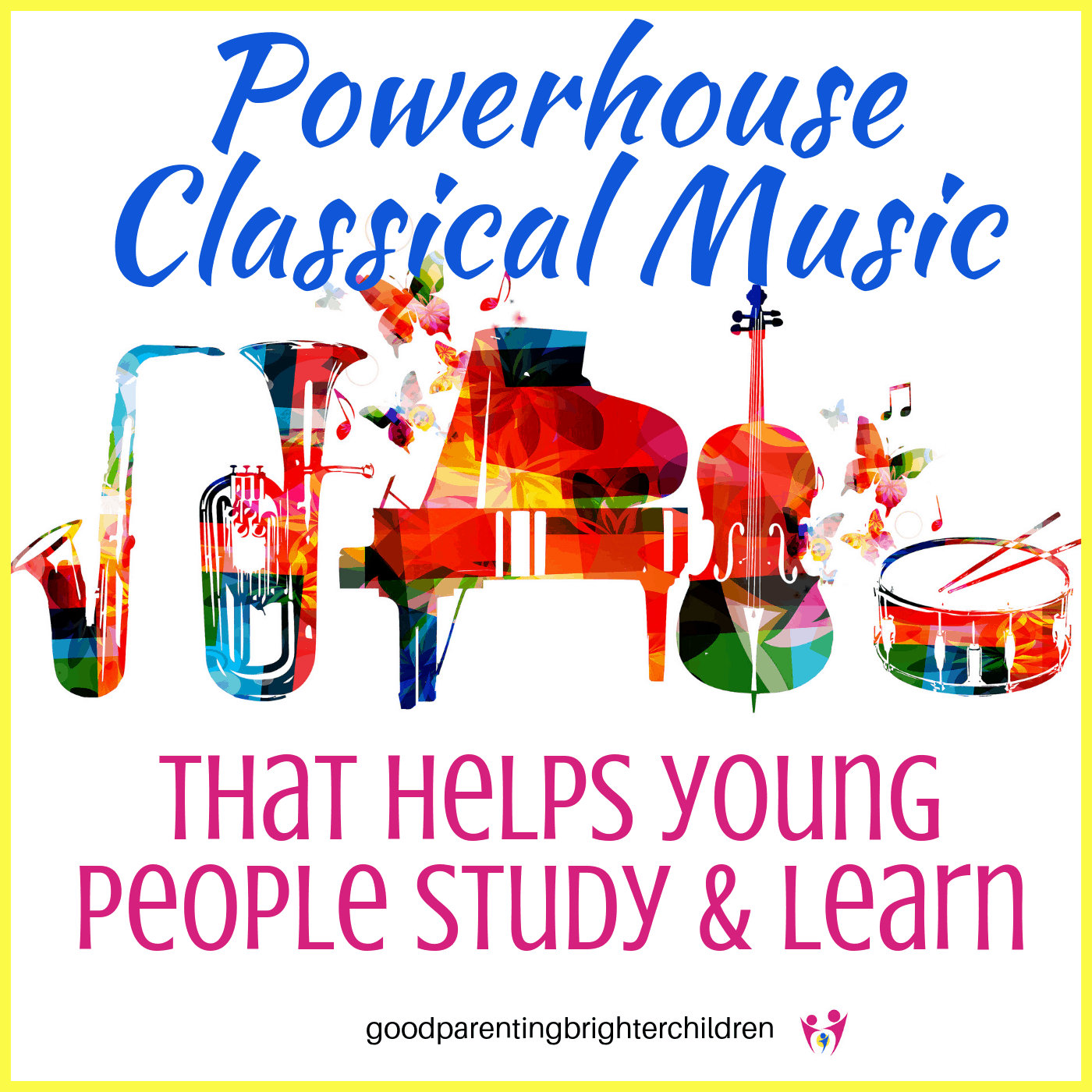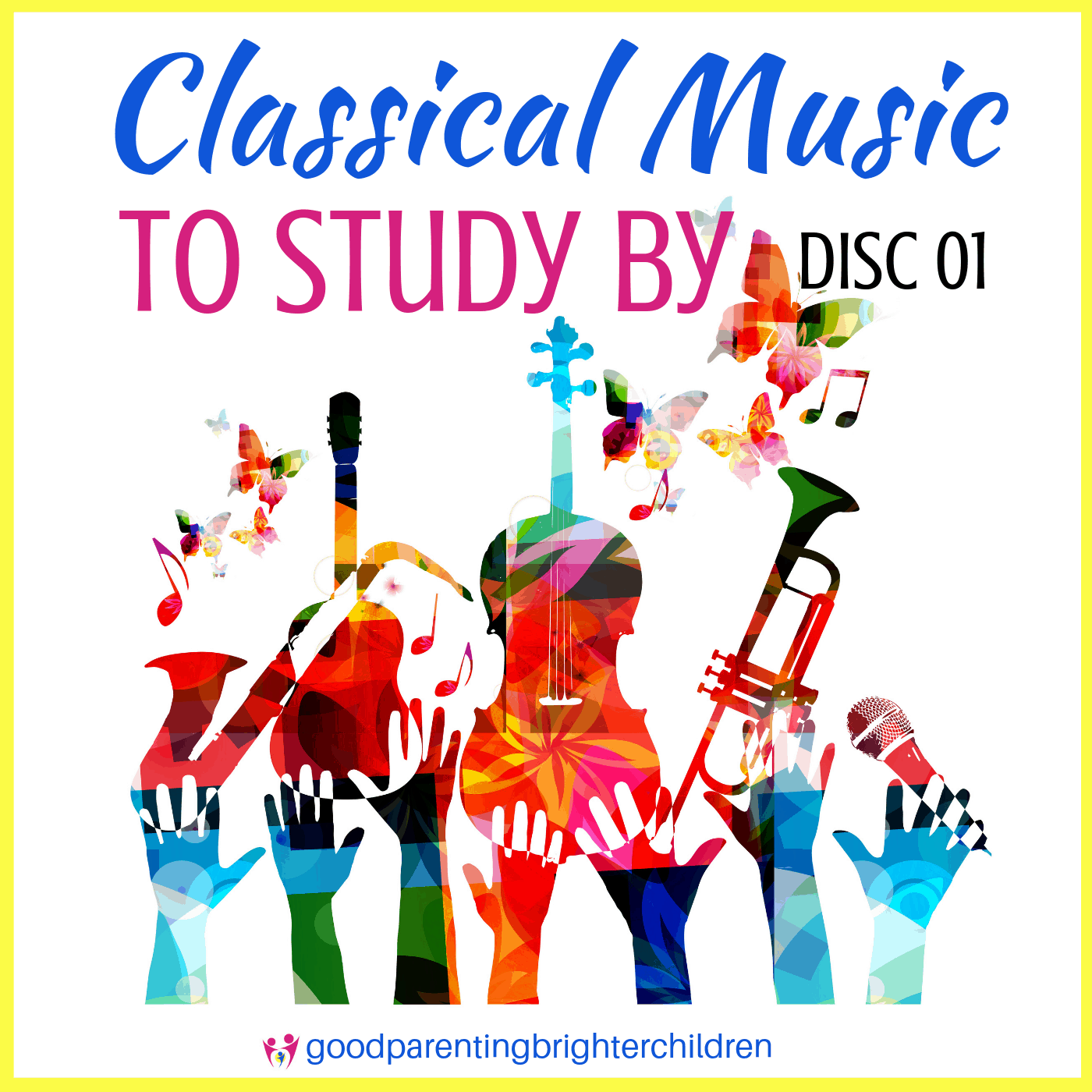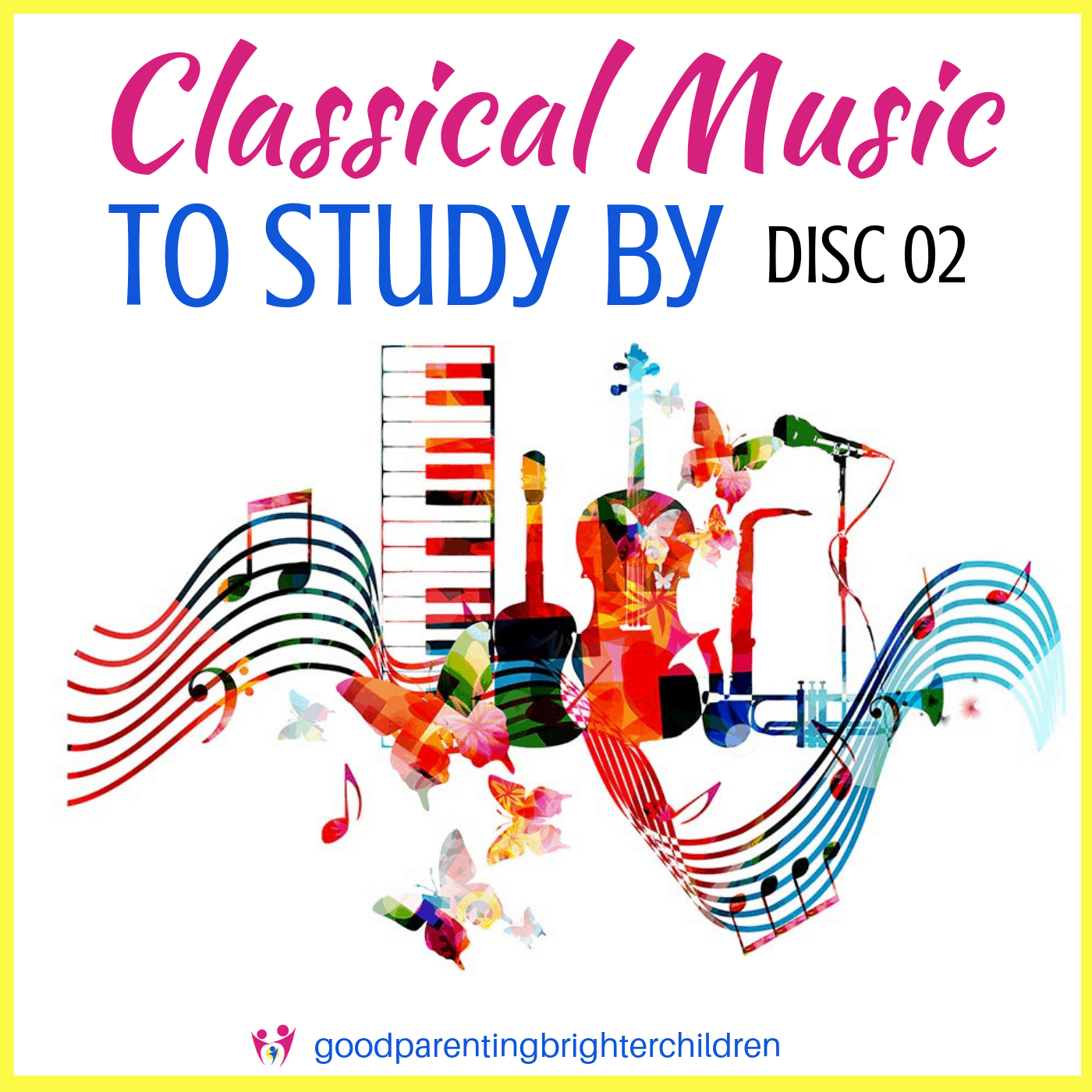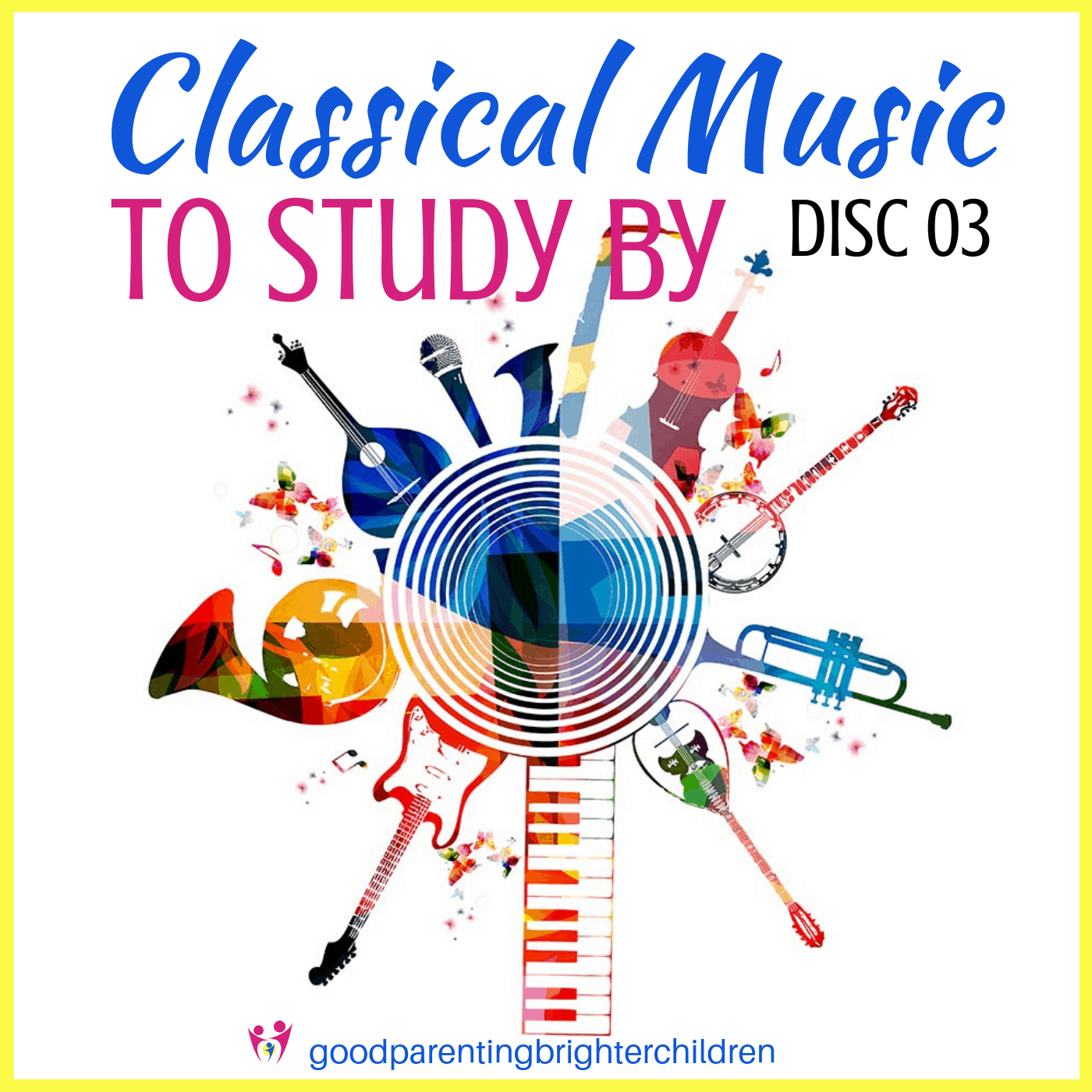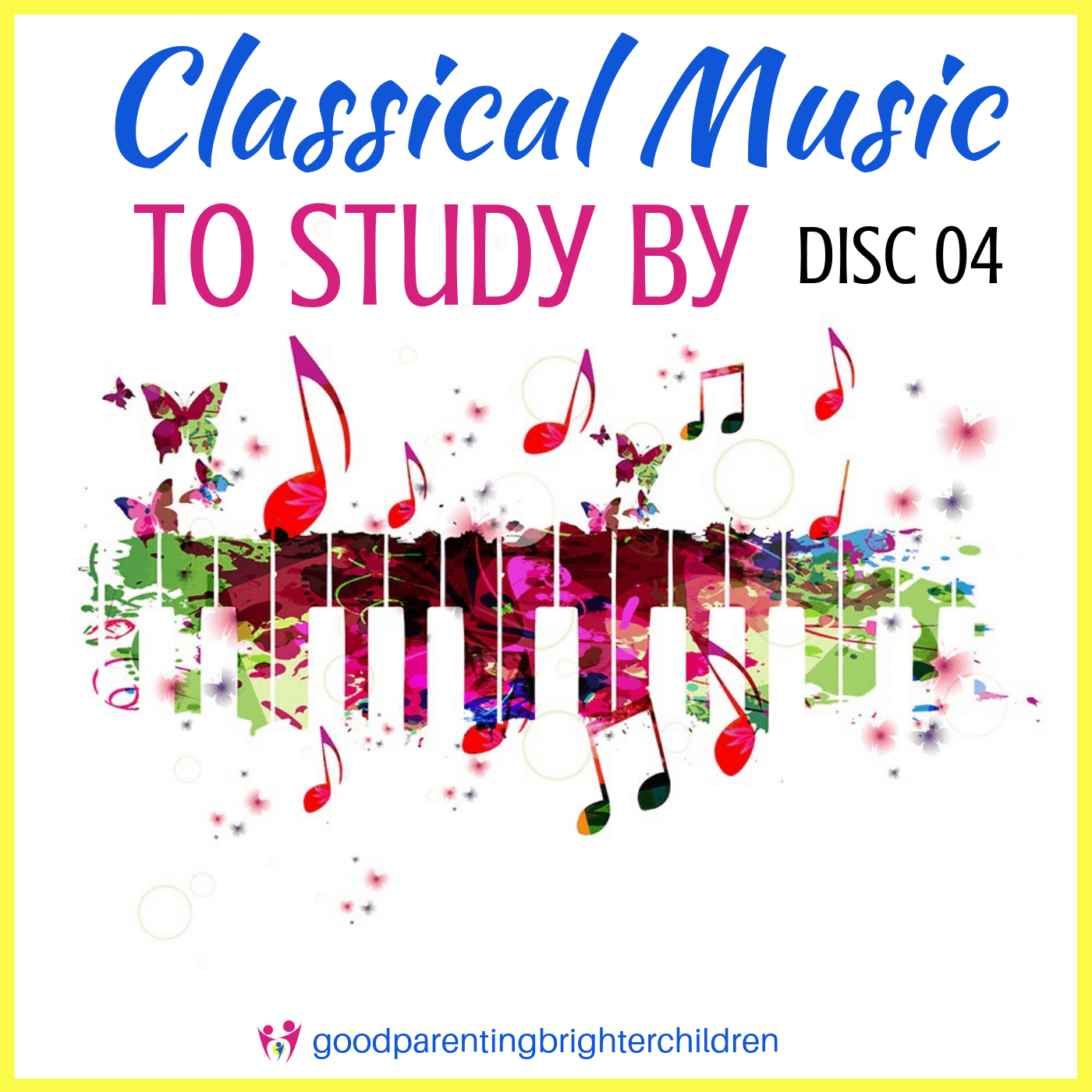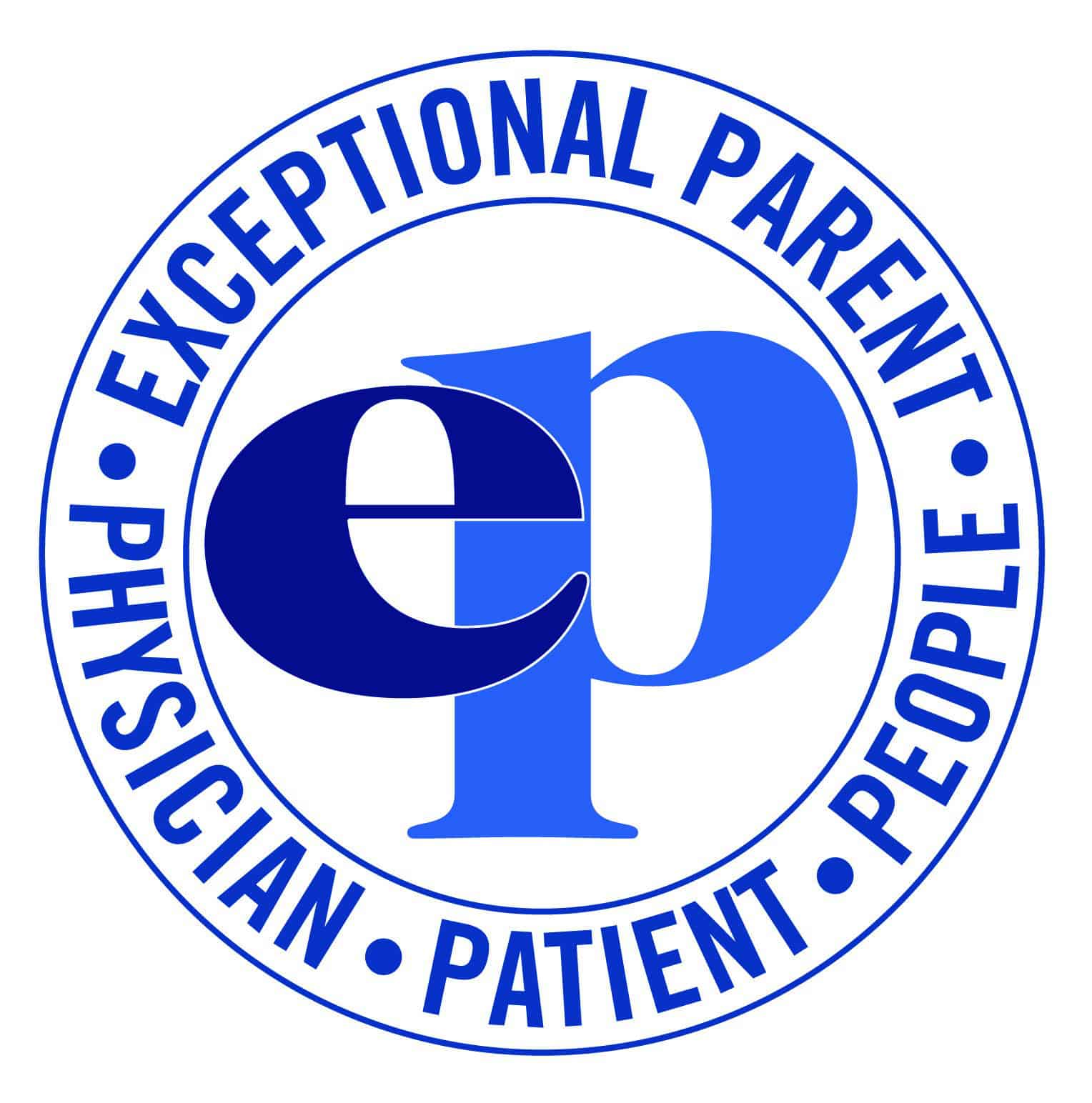Discover How to Help Your Child or Teen Focus, Concentrate, Memorize, Pay Attention and Learn Better and More Effectively... WITHOUT Pills, Supplements or Expensive Counselors
Course Enrollments close on
June 30 2020
Discover how to help your child or teen focus, concentrate, memorize, pay attention and learn better and more effectively.
Does your child have a learning disability which causes issues when he/she tries to:
- stay on task
- concentrate
- or memorize information?
Is your child:
- overwhelmed by school and learning?
Do they have issues with:
- anxiety or depression that inhibits their learning?
- Or does your child just want to increase their abilities to learn?
WHO WILL BENEFIT FROM THIS COURSE?
This course, "Powerhouse Classical Music that Helps Young People Study & Learn", is developed for children, teens, or college students who have a learning challenge, ADHD, or on the autism spectrum. It’s also excellent for teens and college students studying for college entrance or graduate exams. And it will benefit children of all ages who do not have any learning issues. In short, every child or teen can benefit from this music program.
This course
will help…
If your child or teen is challenged by any of these issues—I understand. My third son suffered from a traumatic birth that caused brain damage and severe learning challenges. He was diagnosed by child psychologists with speech & language problems, auditory processing, visual motor, visual perception, ADHD and sensory integration difficulties. And his anxiety and depression further inhibited his abilities to learn.
For Brandon, learning was an impossible task.
Let’s face it: children need a measure of academic success. They are in school many hours each day and they need to feel good about their abilities to learn. And they need to experience school success to increase their confidence levels which in turn helps with positive peer relationships and an optimistic outlook on life.
But how do you help a child achieve academic success when he/she has difficulty paying attention, following directions or sticking to a task? And when any kind of learning is frustrating and confusing?
Oftentimes, these challenges trigger emotional trauma such as anxiety, depression, a fear of learning, or tired discouraged kids.
MUSIC CAN HELP!
Music can help children or teens with or without learning challenges.
For 41 years I have studied and gathered music research conducted by scientists, medical doctors and educational researchers showing that when children or teens listen to certain pieces of classical music it not only exercises the entire brain at once, but it profoundly changes the way their brains process information.
The result: Learning becomes easier. Memorizing information, facts, figures and formulas is easier. Being able to pay attention, focus, and concentrate becomes easier.
In short—learning happens!
But that’s not all. Listening to certain pieces of classical music lessened my son’s anxiety. His moods improved. He was happier and more energized after listening to this music. His relationships with his siblings and peers improved.
My other sons who did not have learning issues also benefited from listening to this music. Because it helps with focusing, concentration and memorization, the amount of time it took to do their homework or studying for tests was cut by 1/3. And, the mood in our home was happier and more optimistic.
All because of listening to specific pieces of classical music with a certain tempo and sound!
Sound simple? It is, actually. Here’s how it works…
Welcome to Powerhouse Classical Music
that Helps Young People Study and Learn!
Listening to certain pieces of classical music with a specific sound and tempo changes the electromagnetic frequencies of the brain which in turn increases a child or teen’s ability to focus, concentrate, pay attention, and memorize information quickly and easily. Because of this, learning increases.
It also lessens anxiety or depression and increases positive energy in children and teens. Instead of certain tasks being overwhelming such as doing homework, paying attention, listening to instructions, or studying for tests—these tasks become positive and successful experiences.
Limited Time Offer -
Enroll now and get a 68% discount!
Here’s What You’ll Get When You Sign Up
This online music course includes key components to help your child focus, concentrate, pay attention and memorize information using music. Included are:
- 78 tracks of music all studied and researched for their ability to change the way the brain processes information, making the learning process easier
- 5 modules with 9 lessons
- 2-hours of video training
- PDF of all the video training
- 6 additional videos on music
- eBook (Good Music Brighter Children) 465 pages
- Music Guide- "Best Music for Kids to Study By" 12 pages
- Access to a private Facebook group to ask questions, etc.
The information in this course is backed by 60+ years of music research by scientists, medical doctors, and educational researchers.
Benefits
Increased Ability to Focus, Concentrate & Pay Attention
Did you know that an increasing number of children are suffering from ADHD (attention deficit disorder)? These children find it extremely difficult to listen, remember and learn what teachers teach them and parents tell them. Completing classwork and homework assignments are overwhelming tasks.
This music program will help. Research shows that playing certain pieces of classical music changes the way the brain processes information making it easier for children, teens or young adult to focus, concentrate, pay attention and complete tasks.
Improved Memorization Skills
Memory is a 3-part process and requires a child or teen to be able to 1) absorb information, 2) retain that information and 3) retrieve it from their memory banks when needed. Attention plays a key role. Whatever a child pays attention to moves into working memory. This means that as they absorb information, they need to hear it, process it, understand it, store it and retrieve it from memory.
Listening to certain pieces of classical music helps in each step of the memorization process making it easier for children and teens to learn and memorize information needed for tests or when memorizing spelling words, math facts & formulas, history, social studies, science lessons and more.
Music Increases Relaxation for Better Learning
Listening to this music engages both sides of the brain triggering easier learning. And it does it in an interesting way—the music causes the rhythms of the body—the heartbeat, brainwaves, etc.—to slow down and synchronize to the music. When the heartbeat slows, the mind works more effectively making it easier for a child or teen to learn more easily. Blood pressure and pulse is also lowered in this process. Psychologists for years have said if children and teens can relax, they can learn easier.
Music Lessens Anxiety, Increases Energy
Classical music has been shown to improve task concentration and performance by alleviating anxiety, freeing the child or teen to focus more directly on the task. Because of the elegant and complex structure of classical music, as a child/teen listens to it, they are able to work faster and longer. How does this happen? The music quiets the mind and produces alpha brain waves best for quiet, focused, stress-free thinking.
Here’s what people are saying about the course
Laurance (New York)
mother of 6-year-old son
"The most noticeable improvements started the second week of listening to the music. He is now able to do his homework tasks with no power struggles."
My 6-year-old son is profoundly gifted and has some executive functioning delays. He is impulsive, carefree of social rules, extremely insecure socially; does not follow class rules; and can be defiant of authority and normative settings. I am constantly trying natural executive functioning enhancements with my son.
Since listening to this music, I have seen an improvement in his ability to focus, stay on mundane tasks, self-regulate and engage in creative and mindful activities.
The most noticeable improvements started the second week of listening to the music. He was less agitated; calmer, listened more; argued less and was happier and more friendly. He is now able to do his homework tasks with no power struggles.
This classical music is now definitely in my toolbox for emotional regulation and fits perfectly in my parenting philosophy and vision. I love it myself and am now including it in our daily routine. Thank God for the newly found peace of mind during homework, chores and dinner times!
Amy (Utah)
mother of 4 children
ages 10, 8, 6, 2
" I was very touched to see that my son’s overall confidence improved greatly while listening to this music. My son was better able to concentrate, focus and memorize and as a result, he felt so much better about himself!"
I was pleasantly surprised while using this program. While listening, my children were calmer, and more self-motivated to complete their homework. And, they concentrated and completed their assignments in a shorter amount of time. They remembered the information they studied and received better scores on homework than they had previously. I saw examples of this in spelling, math, reading comprehension and even music.
My 8-year-old daughter has struggled memorizing her multiplication facts and also her piano notes. Once we started this program, I saw improvements in both areas. She has started passing off some of her multiplication tables and remembers the information much better than before. She also felt anxious while trying to memorize her math facts, but since she’s been able to focus and concentrate, she stays calm and positive.
My 10-year-old son (who is diagnosed with ADHD) really enjoyed listening to this music. He said that while listening to the music, he felt calmer and it was easier for him to remember what he was learning because focusing was easier. Prior to this program, my son continually needed to be redirected because he struggled to focus. Most assignments we would break up into sections with breaks in between. Once we started listening to the music, concentration came easier. He could complete multiple assignments; stay on task and not getting distracted. His memorization skills also improved. He would spend hours studying his spelling words and still could not remember them on tests. Since listening to the music, we’ve seen improvements in his test scores.
I was very touched to see that my son’s overall confidence has improved since listening to this music. He’s able to concentrate, focus and memorize and as a result, he feels so much better about himself! He is now eager to begin his homework – because he knows what he is capable of. Being able to focus and then to remember the information he studied has changed him. I am truly grateful for this unexpected benefit.
Tiffany (Florida)
mother of 16-year old son
"He was able to easily concentrate, focus and tackle difficult homework tasks with more ease."
My son, Zach is an 11th grader and is currently duel-enrolled at the high school and local community college. The adjustment has been rocky due to the schedule and some of the rigors of the college courses.
Zach struggles with studying for the college courses because until now, studying was easy for his gifted mind. Now that he’s being challenged, it’s become difficult for him. He’s easily distracted and has a hard time sitting down and focusing on homework tasks
At first the classical music was just another distraction. He didn’t feel it was useful and didn’t want to do it. We made some adjustments to the volume level and listened to the 4 CDs to find which music selections he enjoyed. Once we did that, he started seeing some great results
From that point on, once the minute the music started, Zach was in the mindset of homework, studying and focusing. He was able to easily concentrate, focus and tackle difficult homework tasks with more ease. He called it “being in the zone,” and was able to tune-out everything else around him.
It’s been extremely helpful for him and I’ve seen a HUGE improvement in his study skills and the amount of positive energy he puts into his schoolwork.
A simple, yet powerful music program!
What’s included in the course
1
Module 1: Introduction
This course is particularly geared to children, teens, college students who have any type of learning challenge, ADHD, on the autism spectrum, or even teens and college studying for college entrance exams or graduate exams. The Introduction explains why this music helps kids who have difficulty paying attention, listening, focusing, concentrating, memorizing, sticking to tasks such as completing homework or studying for a test in a timely manner.
Included is the personal story of my learning-disabled son Brandon and how this music changed the way he was able to learn as well as my background and why I’m qualified to teach this course.
2
Module 2: The Problem (2 lessons)
Lesson #1: Why Classical Music
Lesson #1 explores why the complexity of classical music changes the way the brain processes information making it easier to learn. When your child listens to this music, his/her brain is literally “on fire” as it is exercising, building and strengthening brain circuitry for learning! Discover the connection between Mozart, Music, Math and Architecture and the relationship to learning.
Lesson #2: The Science Behind the Music
Since the early 1960s, certain pieces of classical music with a specific tempo and sound have been studied for their ability to increase memory, focusing, concentration and learning.
Scientists, medical doctors and educational therapists have discovered that certain elements in classical music enhances learning. Merely listening to certain pieces of classical music changes the electromagnetic frequencies of the brain allowing the mind to remain alert and the body to relax. It improves school performance, alleviates task anxiety, increases attention span, concentration and memorization skills. It also increases a child’s energy levels allowing them to work faster and longer. Bottom line: music can be the catalyst for learning!
3
Module 3: The Steps (2 lessons)
Lesson #3: How to Use this Classical Music When Studying
Learn the simple step-by-step instructions on how to use this music to achieve the greatest learning results for your children and teens. It’s as easy as turning on the music, choosing the correct decibel level and letting the music play while your children/teens are engaged in homework or other tasks requiring concentration and focusing. Simple and powerful!
Lesson #4: Using the 4 Music Discs
Included in this lesson are 78 tracks of classical music divided into 4 CDs with names of the composers and each piece of music. It can be downloaded to any device or played right from the course. Each of the 78 pieces of music have been chosen for a specific tempo, sound and clarity. And each has been researched extensively for its ability to change the electromagnetic frequencies of the brain and change the way the brain processes information.
Start with Disc 01 which includes music with 60 beats per minute tempo. The other 3 tracks contain music with a livelier beat. Experiment to see which tempo works best for your children. All of the music has been studied and researched to work and achieve positive results for learning.
4
Module 4: The Solution (2 lessons)
Lesson #5: What to Expect When Using Classical Music to Study By
Since the early 1960s, countless studies have been conducted using this music to see how they benefit children, teens and adults of all ages in the learning process. This lesson cites 10 different studies of what parents can expect to see using this music for their children to study to. Included are 5 recommendations for different ways you can use this music for your children/teens with or without learning challenges. Recommendations are included for parents of children with autism, Downs syndrome, etc., and what to expect when playing the music for these children. Oftentimes you will see behavioral improvements before you see academic improvements. Both are important for learning.
Lesson #6: Consistency + Following Instructions = Success!
The formula for success in anything is consistency! This program is no exception. If you consistently play the music for your children/teens while they are studying, you will see amazing results in their abilities to focus, concentrate, pay attention, attend to tasks, memorize information quickly and more. You will notice a change in their behavior. You will notice improvements in their anxiety levels, depression, fears, etc. The most important thing you can do is be CONSISTENT! Play it daily and watch what happens!
Learn how music affects other areas of the brain such as auditory, visual and motor cortices.
5
Module 5: Bonus- Good Music Brighter Children
(2 lessons)
Lesson #7: How to Get the Most From this Book
Bonus: included in this course is a copy of my eBook: Good Music Brighter Children. Outlined are suggestions on how to read this 465-page book to glean the most from it. For some, the length can be overwhelming, but if you follow these suggestions, you will find it to be a powerful book with 100s of suggestions on how to incorporate music into your child’s life and the countless ways music builds and strengthens the brain.
Check out the 52-page Resource Section filled with books, CDs, composers and their music and more for kids, parents, and educators.
Music can be the antithesis of your kids being exposed to too much technology—learn what technology does to the brain—and how music can actually heal the brain. When in doubt—always choose music for your kids over technology!
Lesson #8: Benefits of Good Music Brighter Children
This last lesson breaks down chapter-by-chapter my book Good Music Brighter Children and the many ways you can use it in your home and with your children.
Bonus
Bonuses!
eBook:
"Good Music Brighter Children"
My 465-page book contains hundreds of ideas, suggestions, stories, books, CDs, and studies, supporting the importance of music in every child’s life. Translated into 5 languages, Kirkus Media, LLC said this about Good Music Brighter Children: “With a scientist’s eye and an artist’s voice, Habermeyer examines everything from the benefits of music for the developing brain to music’s ability to improve cultural awareness. A magnum opus, fact-filled and inspiring on the benefits of music.”
6 Videos of the importance of Music & How it Builds the Brain
Here are an engaging series of videos developed by Habermeyer about the importance of music on the brain and how it influences young people to learn easier. Sharlene lays a foundation why getting your children and teens involved in music is as important to the brain as eating healthy food.
Access to Private Facebook Group:
Good Music Brighter Children
Having access to a private Facebook group is like having access to your own personal coach. It’s a way to ask questions, for me to answer them and help you succeed with this music program. Plus, we can all learn from each other—as each person brings their expertise and experience with music and their children to share in the group.
About The Course Instructor,
Sharlene Habermeyer
Sharlene Habermeyer, M.A., has studied the affects of music on the brain for the past 41 years. She is the author of Good Music Brighter Children; originally translated into 5 languages in 1999 and extensively updated with the latest 21st century studies on music in 2014.
Habermeyer has practiced what she suggests with her 4 sons—who were all involved playing musical instruments and listening to classical music daily while studying. Her third son, Brandon was severely learning disabled and was able to learn using music and eventually graduated from college with a double major and a university G.P.A. of 4.0 (something the experts said would never happen).
She has lectured all over the country as a keynote and featured speaker at universities, education and parent conferences, public and private schools and to homeschoolers. She has written articles on music for several magazines including ADDitude magazine, Exceptional Parent (EP) and About.com and has been seen on television (Fox News) and radio talking about music, children and the brain. In 1999 she started the Palos Verdes Regional Symphony Orchestra which is still going strong.
Along with her love of music, she has a love of reading and books.
Why This Course Is Valuable
There are other classical music listening programs available. However, all of them are very expensive and they do NOT suggest having your child study while listening to the music. Two of the programs require the child to just sit and listen and one program allows for movement. My son when through one of these programs 30 years ago and the cost then was $45/session, and I purchased the other two—one costing $1,000 and the other $5,000.
These programs helped my son with some of his auditory issues, but I needed a program where he could listen to music while he was doing homework, or engaged in other academic tasks or music that would be calming and would help him focus, concentrate, pay attention and memorize his lessons. None of the programs mentioned above did this.
My other sons were already listening to specific pieces of classical music while studying that were tested and suggested by Georgi Lozanov as well as other scientists and researchers in the U.S. They were having excellent results, so I knew the music would also help Brandon—and it did!
For over 60 years, parents and teachers have been using specific pieces of classical music suggested by Lozanov for their children/students with amazing results—whether or not they have learning or emotional challenges, or no issues at all. I’ve shared this music with 100s of parents and educators over the past 40 years and all report back their success stories. Your children and teens can experience the same amazing results!
Course Enrollments close on
June 30 2020

100% Satisfaction Guarantee for 30-Days!
This course comes with a 30-day money-back guarantee if you are not completely satisfied!
Frequently Asked Questions
Can my child or teen use headphones to listen to the music?
My child has sensory issues and ADHD and he doesn’t like any kind of music or noise in the background while he is studying. It’s too distracting. How can I use this music successfully with him?
How long will it take for me to notice positive results from using this music with my children and teens?
How does your music program compare to other classical music listening programs?
What is the most important thing for me to know when using this music for my children and teens?
My personal note
I’m very proud to be offering this music listening course for your family. By signing up, you will experience the same positive results with your children and teens as my family and thousands of others have. We all want our children to succeed academically and emotionally and when something this simple, powerful and affordable comes along—the decision to purchase it becomes a non-brainer!
As Seen On...
